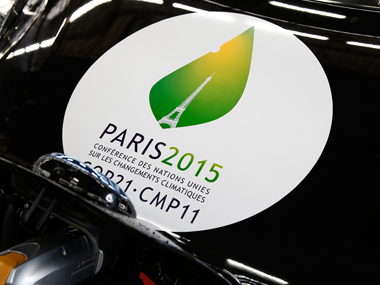Paris: Here is a brief look at some key points of contention during the Paris talks that went into overtime mode: [caption id=“attachment_2520502” align=“alignleft” width=“380”]  Paris Climate change talks/ Reuters[/caption] TEMPERATURE TARGET: Small island countries most endangered by rising sea levels want a commitment to keep Earth’s temperatures from increasing more than 1.5 degrees Celsius over pre-industrial norms. That would be much more ambitious than the 2 degree limit set out in previous talks. Saudi Arabia, with an economy dependent on fossil fuels, opposes the 1.5-degree target, experts say. Voluntary commitments put forward already by 158 countries covering 90 per cent of global emissions would only keep warming to 2.7 degrees at best, while UNEP projects increases of 3 to 3.5 degrees. Earth’s temperature has already climbed 0.8 degrees since 1850 and is expected to rise 4 to 6 degrees by 2100 if no efforts are made to reduce emissions. LEGAL STATUS OF OUTCOME: US Secretary of State John Kerry told the Financial Times this month that the US would not sign on to legally binding reduction targets like those in the Kyoto Protocol that expires in 2020. European countries have insisted that the targets must be legally binding in order to enforce global emissions reductions. Experts say the US is likely open to having some parts of the agreement be legally binding, such as a commitment by countries to rigorously and regularly report on their emissions and update their targets. FINANCE: Many poor countries, including India, the third largest producer of emissions, have submitted ambitious targets - but note their need for funding from developed economies responsible for historic carbon dioxide pollution. India alone estimates it will need 2.5 trillion dollars between now and 2030. The dispute centres on an annual 100-billion-dollar pledge made by developed countries that is to be available by 2020 to help developing economies build green power sources and adapt to increasing temperatures. Industrialized countries say the money will be a combination of public and private investments. A number of developing countries and activist groups however insist that all the funds must come directly from government coffers. “What Paris needs to do is help send the signal to shift trillions of dollars into low carbon climate resilient development,” said Jennifer Morgan of the World Resources Institute. LOSS AND DAMAGE: The United States and other countries acknowledge that there must be help for small islands and coastal regions that are suffering increasingly violent storms as sea levels rise. But they are opposed to cementing financial commitments into legal terms that would create grounds for liability or compensation. Poor nations are pushing for definite commitments of help.
Talks have opened Monday in Paris on the urgent issue of how to keep Earth cool, but pressing issues like the legal status of the outcome, finance and temperature targets are still up in the air - and could elude consensus until the final hours. Here is a brief look at some key points of contention:
Advertisement
End of Article
Written by FP Archives
see more


)

)
)
)
)
)
)
)
)



